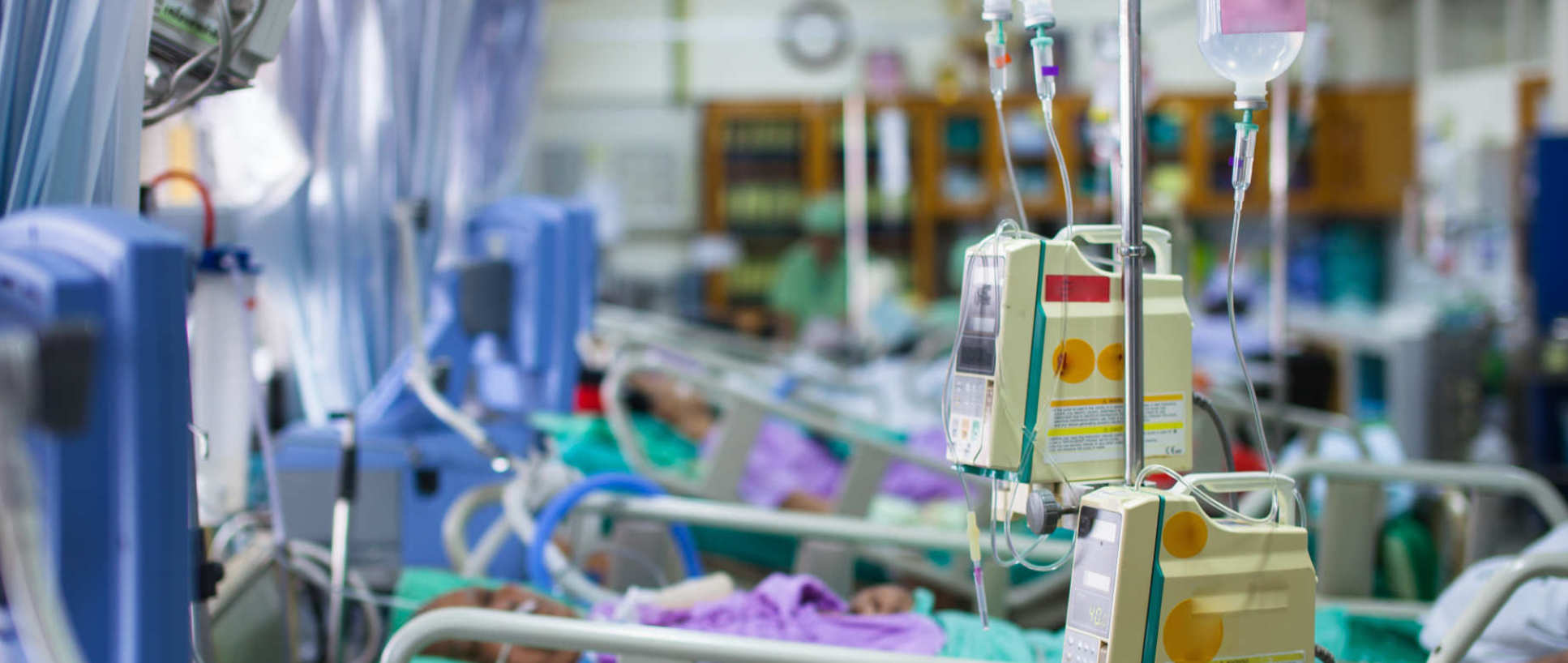BibTex format
@article{Parnia:2016:10.1097/CCM.0000000000001723,
author = {Parnia, S and Yang, J and Nguyen, R and Ahn, A and Zhu, J and Inigo-Santiago, L and Nasir, A and Golder, K and Ravishankar, S and Bartlett, P and Xu, J and Pogson, D and Cooke, S and Walker, C and Spearpoint, K and Kitson, D and Melody, T and Chilwan, M and Schoenfeld, E and Richman, P and Mills, B and Wichtendahl, N and Nolan, J and Singer, A and Brett, S and Perkins, GD and Deakin, CD},
doi = {10.1097/CCM.0000000000001723},
journal = {Critical Care Medicine},
pages = {1663--1674},
title = {Cerebral oximetry during cardiac arrest: a multicenter study of neurologic outcomes and survival},
url = {http://dx.doi.org/10.1097/CCM.0000000000001723},
volume = {44},
year = {2016}
}
RIS format (EndNote, RefMan)
TY - JOUR
AB - OBJECTIVES: Cardiac arrest is associated with morbidity and mortality because of cerebral ischemia. Therefore, we tested the hypothesis that higher regional cerebral oxygenation during resuscitation is associated with improved return of spontaneous circulation, survival, and neurologic outcomes at hospital discharge. We further examined the validity of regional cerebral oxygenation as a test to predict these outcomes. DESIGN: Multicenter prospective study of in-hospital cardiac arrest. SETTING: Five medical centers in the United States and the United Kingdom. PATIENTS: Inclusion criteria are as follows: in-hospital cardiac arrest, age 18 years old or older, and prolonged cardiopulmonary resuscitation greater than or equal to 5 minutes. Patients were recruited consecutively during working hours between August 2011 and September 2014. Survival with a favorable neurologic outcome was defined as a cerebral performance category 1-2. INTERVENTIONS: Cerebral oximetry monitoring. MEASUREMENTS AND MAIN RESULTS: Among 504 in-hospital cardiac arrest events, 183 (36%) met inclusion criteria. Overall, 62 of 183 (33.9%) achieved return of spontaneous circulation, whereas 13 of 183 (7.1%) achieved cerebral performance category 1-2 at discharge. Higher mean ± SD regional cerebral oxygenation was associated with return of spontaneous circulation versus no return of spontaneous circulation (51.8% ± 11.2% vs 40.9% ± 12.3%) and cerebral performance category 1-2 versus cerebral performance category 3-5 (56.1% ± 10.0% vs 43.8% ± 12.8%) (both p < 0.001). Mean regional cerebral oxygenation during the last 5 minutes of cardiopulmonary resuscitation best predicted the return of spontaneous circulation (area under the curve, 0.76; 95% CI, 0.69-0.83); regional cerebral oxygenation greater than or equal to 25% provided 100% sensitivity (95% CI, 94-100) and 100% negative predictive value (95% CI, 79-100); regional cerebral oxygenation greater than or equal t
AU - Parnia,S
AU - Yang,J
AU - Nguyen,R
AU - Ahn,A
AU - Zhu,J
AU - Inigo-Santiago,L
AU - Nasir,A
AU - Golder,K
AU - Ravishankar,S
AU - Bartlett,P
AU - Xu,J
AU - Pogson,D
AU - Cooke,S
AU - Walker,C
AU - Spearpoint,K
AU - Kitson,D
AU - Melody,T
AU - Chilwan,M
AU - Schoenfeld,E
AU - Richman,P
AU - Mills,B
AU - Wichtendahl,N
AU - Nolan,J
AU - Singer,A
AU - Brett,S
AU - Perkins,GD
AU - Deakin,CD
DO - 10.1097/CCM.0000000000001723
EP - 1674
PY - 2016///
SN - 0090-3493
SP - 1663
TI - Cerebral oximetry during cardiac arrest: a multicenter study of neurologic outcomes and survival
T2 - Critical Care Medicine
UR - http://dx.doi.org/10.1097/CCM.0000000000001723
UR - http://hdl.handle.net/10044/1/32485
VL - 44
ER -



 Critical care involves the care of the sickest patients in the hospital. Critically ill patients have usually been through a significant insult to their body (such as trauma, infection, burn) and have developed organ failure and require life-support. Critical Care is the largest theme bringing together clinicians and scientists from diverse backgrounds and includes collaborative research from hospitals throughout north-west London. Investigations range from evaluating biological mechanisms of organ failure through to the development of innovative technologies which allow the short-term and long-term support and recovery of organs.
Critical care involves the care of the sickest patients in the hospital. Critically ill patients have usually been through a significant insult to their body (such as trauma, infection, burn) and have developed organ failure and require life-support. Critical Care is the largest theme bringing together clinicians and scientists from diverse backgrounds and includes collaborative research from hospitals throughout north-west London. Investigations range from evaluating biological mechanisms of organ failure through to the development of innovative technologies which allow the short-term and long-term support and recovery of organs.